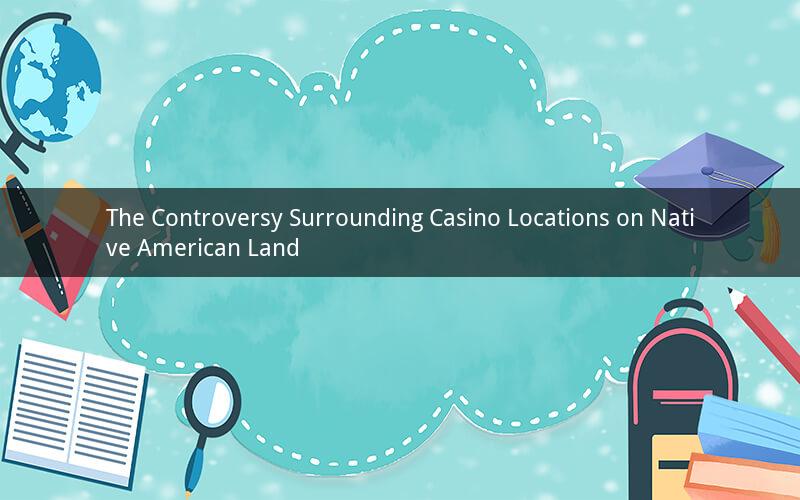
Introduction:
The topic of casinos on Native American land has sparked a heated debate among various stakeholders. This article delves into the history, legal aspects, and social implications surrounding this contentious issue. By examining the arguments for and against the establishment of casinos on Native American land, we aim to provide a comprehensive understanding of the matter.
1. Historical Background:
The concept of casinos on Native American land dates back to the late 20th century when the Indian Gaming Regulatory Act (IGRA) was passed in 1988. This legislation allowed tribes to conduct certain forms of gambling on their reservations, which led to the rapid expansion of casinos across the United States.
2. Legal Framework:
The IGRA provides a legal framework for tribes to establish and operate casinos on their land. According to the act, tribes can conduct Class I, II, and III gaming activities. Class I gaming includes social games for prizes, whereas Class II gaming encompasses bingo, pull-tabs, and card games. Class III gaming includes slot machines, blackjack, and poker, which are subject to federal regulation.
3. Economic Benefits:
Proponents argue that casinos on Native American land bring significant economic benefits to tribes and surrounding communities. These benefits include job creation, increased revenue, and improved infrastructure. Casinos have been credited with lifting many tribes out of poverty and providing essential services such as healthcare, education, and housing.
4. Social Implications:
Critics of casinos on Native American land raise concerns about the social impact of gambling. They argue that casinos can lead to addiction, crime, and other negative consequences within tribal communities. Furthermore, some opponents believe that the establishment of casinos on sacred land violates cultural and religious values.
5. Political and Legal Challenges:
The issue of casinos on Native American land has faced numerous legal and political challenges. Tribes often face opposition from neighboring communities, state governments, and even other tribes. Legal battles over land rights, tribal sovereignty, and gaming regulations have been prevalent, with varying outcomes in different jurisdictions.
6. Public Opinion:
Public opinion on the matter is divided. Some individuals believe that casinos on Native American land are beneficial for economic development and tribal sovereignty. Others argue that the negative social implications outweigh the economic benefits and that casinos should be located elsewhere.
7. Conclusion:
The establishment of casinos on Native American land remains a contentious issue with valid arguments on both sides. While economic benefits and tribal sovereignty are compelling reasons for supporting casinos, the social implications and potential negative consequences cannot be ignored. It is essential to strike a balance between economic development and the well-being of tribal communities.
Questions and Answers:
1. Q: What is the Indian Gaming Regulatory Act (IGRA)?
A: The Indian Gaming Regulatory Act is a federal legislation passed in 1988 that allows tribes to conduct certain forms of gambling on their reservations, subject to specific guidelines and regulations.
2. Q: Can tribes operate casinos on any land within their reservation?
A: Yes, tribes can operate casinos on any land within their reservation, as long as it complies with the provisions of the IGRA and any other relevant federal, state, or local regulations.
3. Q: What are the economic benefits of casinos on Native American land?
A: Casinos on Native American land can bring significant economic benefits, including job creation, increased revenue for tribes, improved infrastructure, and opportunities for economic development within tribal communities.
4. Q: What are the social implications of casinos on Native American land?
A: Casinos on Native American land can lead to negative social implications, such as gambling addiction, crime, and other social problems within tribal communities. These issues have sparked criticism and debate regarding the impact of casinos on tribal societies.
5. Q: How has public opinion on casinos on Native American land evolved over time?
A: Public opinion on the matter has been divided, with some supporting casinos as a means for economic development and tribal sovereignty, while others opposing them due to the potential negative social consequences and concerns about the sanctity of sacred land. Public opinion has evolved over time, reflecting the ongoing debate and discussion on the issue.